New Project Aims to Revolutionize Ocean Observations and Measurements
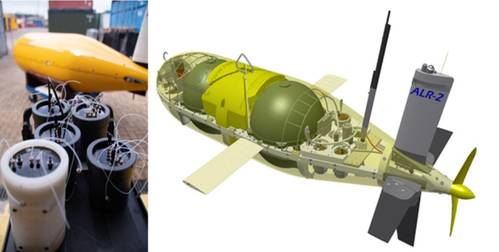
Left: Lab-On-Chip chemical sensors (foreground) with autonomous underwater vehicle (submarine) Autosub Long Range behind. Right: CAD model showing Autosub Long Range with seven Lab-On-Chip nutrient sensors in the nose and four Lab-On-Chip and one electrochemical sensor for the ocean carbonate (CO2) system at the stern. (Images: NOC)
International ocean technology experts from the U.K., Cyprus, France, Germany, Greece, Ireland, Italy and Spain are uniting to develop a range of new in-situ sensing, imaging and sampling technologies that will improve our understanding of the chemistry and biology of the ocean under a new project being coordinated by the National Oceanography Center.
Funded by a €8.9 million ($10.5 million) grant from the European Union's Horizon 2020 program, TechOceanS – Technologies for Ocean Sensing – will pioneer five new sensors, two imaging systems, a novel sampler and an artificial intelligence-driven image processing methodology, all capable of robust operations at depths beyond 2,000 meters.
TechOceanS will actively engage with scientists, manufacturers, marine stakeholders and resource managers to target “Essential Ocean Variables” that currently can only be measured by observations from a ship. The new technologies developed in the project will enable the capture of vital, previously inaccessible data on the ocean’s biogeochemistry, biology and ecosystems.
The project’s highly interdisciplinary team ensures that the technologies developed will both expand our knowledge of the ocean’s interconnected systems and provide tangible benefits to those industries most directly reliant on them, such as fisheries and aquaculture. The data generated will also support conservation initiatives and provide vital information for policymakers.
The NOC’s Professor Matthew Mowlem, TechOceanS Project Coordinator, said, “TechOceanS is an ambitious project that has the potential to revolutionize how we measure and monitor our changing oceans. The exciting technology we’re developing will capture important data that will have a significant impact in diverse areas such as ocean conservation, resource management, blue economy and policy."
TechOceanS will deliver an unprecedented acceleration in the diversity and capability of sensors and measurement systems. Technical ambitions for the project include:
- piloting and demonstrating novel nucleic acid samplers and sensors targeting the genetic code of aquatic organisms to identify them and quantify their populations;
- improving imaging systems and image processing workflows so that machines can turn vast numbers of images into data about species, habitats and plastic pollution;
- producing optical primary productivity (plant growth) and multi-parameter optical sensors to measure energy entering the base of the food web and to investigate water quality; and
- creating biogeochemical and bio-assay enabled lab-on-chip sensors and microcytometers to measure a large number of parameters including: nutrients, carbon dioxide, trace metals, bio-toxins, pollutants, single celled organisms and microplastics.
The future impact of these valuable technologies relies on their accessibility. Therefore, TechOceanS technology pilots will be low-cost and place minimal demands on existing infrastructure, allowing them to be made available for use by all countries regardless of resources.
In addition to expanding scientific knowledge of the ocean, TechOceanS will focus on improving “ocean best practices” by working closely with the IOC-UNESCO to develop training and standards covering metrology and operation of measurement systems in addition to the application of management principles, standards, protocols and communications for open access data. In this way, the project will ensure the developed best practices are truly global, inclusive and transparent.
Through the targeted technologies, diverse partner base and cooperation with concurrent projects, TechOceanS will contribute to the growth of scientific knowledge, the transfer of marine technology and other key components of the Blue Economy as described in international accords such as the UN’s Sustainable Development Goals, the G7 Future of the Seas and Oceans Working Group, the Paris Climate Agreement, the UN Decade of Ocean Science for Sustainable Development, and the EU Marine Strategy Framework Directive.
Dr. Patricia López-García, one of the TechOceanS project managers, said, “In addition to the work carried out within the project, TechOceanS will form mutually beneficial links with a number of other projects over its lifetime, such as Nautilos, EuroSEA, Blue-Cloud, iAtlantic, AtlantECO, Euro-Argo ERIC, MISSION Atlantic and others. Through these synergies, we are excited to contribute to a brighter future for our world’s seas.”
The TechOceanS launch meeting was held on Tuesday, November 10, 2020. The first priorities for the project will include targeting key enabling innovations and establishing cross-cutting research activities to accelerate the development of targeted technologies and forming plans with target dates for their testing demonstration and roll out.

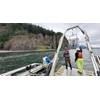
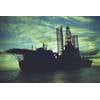
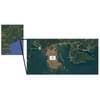
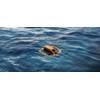
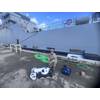








 December 2025
December 2025



